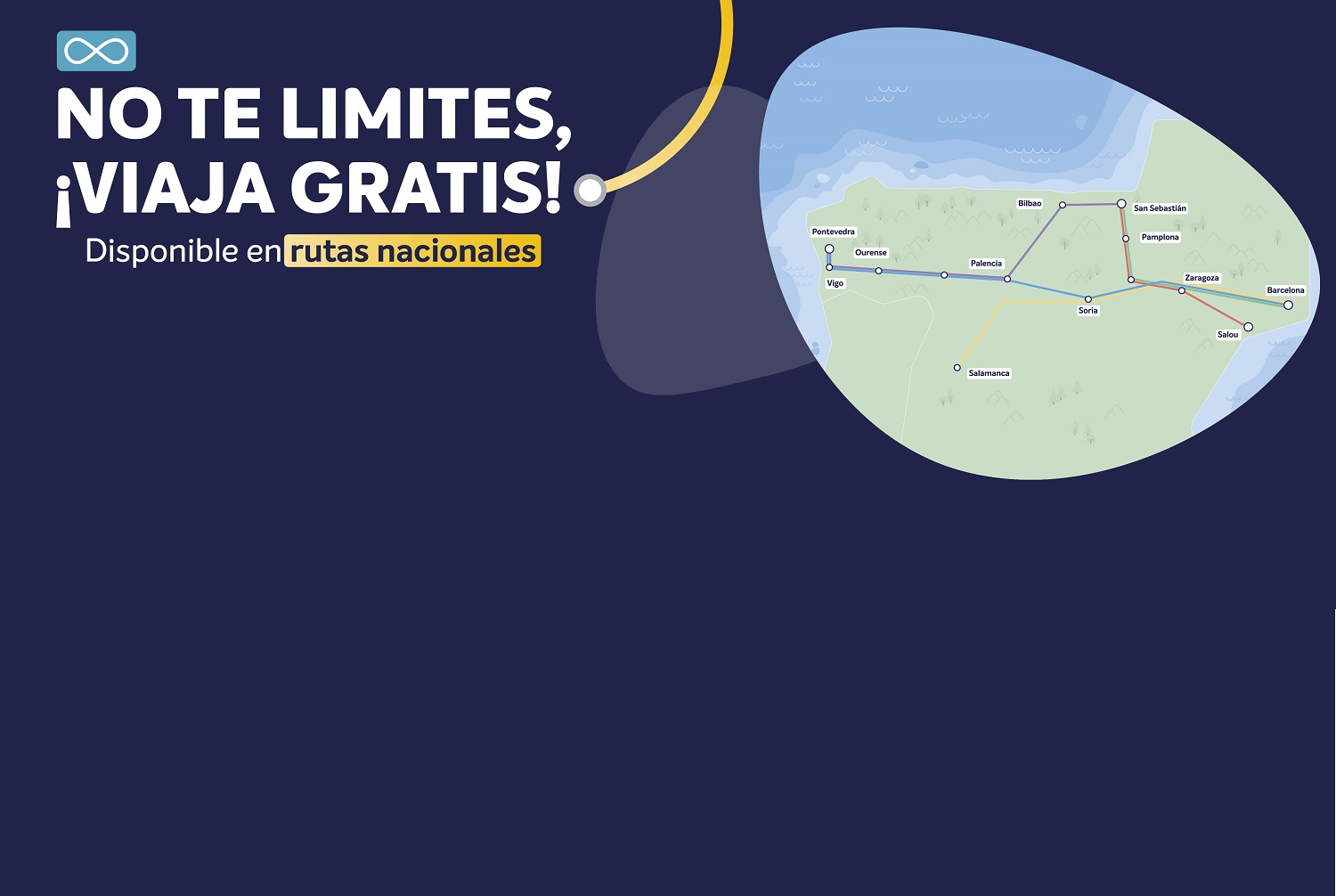COMPANY
MONBUS
Monbus buses have witnessed countless stories, goodbyes and meetings… A lot of people, together with their dreams and wishes, have been travelling with us for more than a hundred years. For this reason we work hard every day, to make your travel more comfortable and secure.
The events that have determined the evolution of the most emblematic companies of Monbus as well as more and more anecdotes and curiosities, are represented in this interactive timeline.
Travel through our history!








We want to go on writing with you the pages of our history, since your destination is our departure point.
MONBUS HISTORY
1936 - 1939. The birth
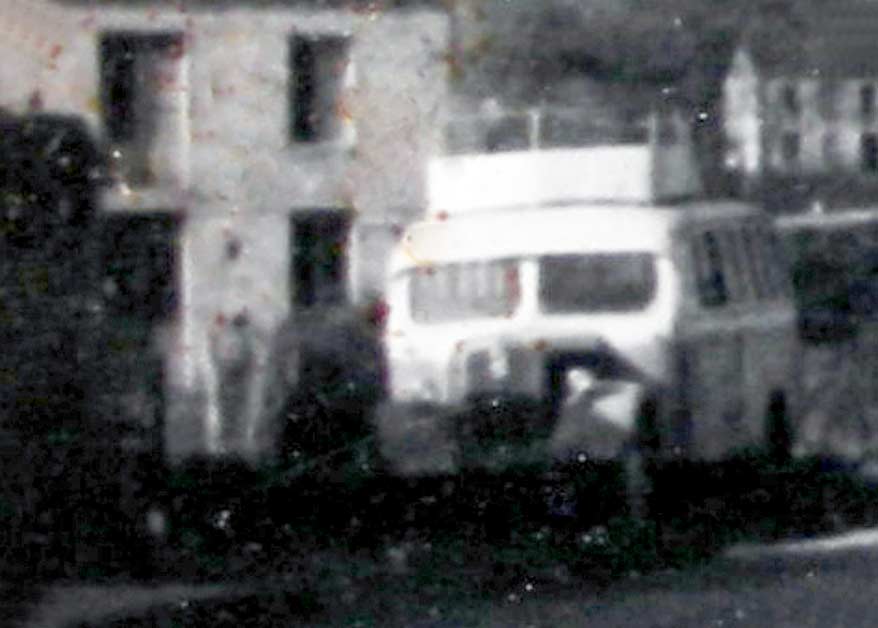
Monbus has its origins in the bosom of a Galician modest family company founded by Raúl López Loureiro (1913 - 1978) from Sarria, during the Spanish Civil War (1936 - 1939).
The main activity of the company, which took the name of “Raúl - Sarria”, was the road passenger transport and its main asset was a van valued at 500 pesetas.
MONBUS HISTORY
The fifties. Cattle shows
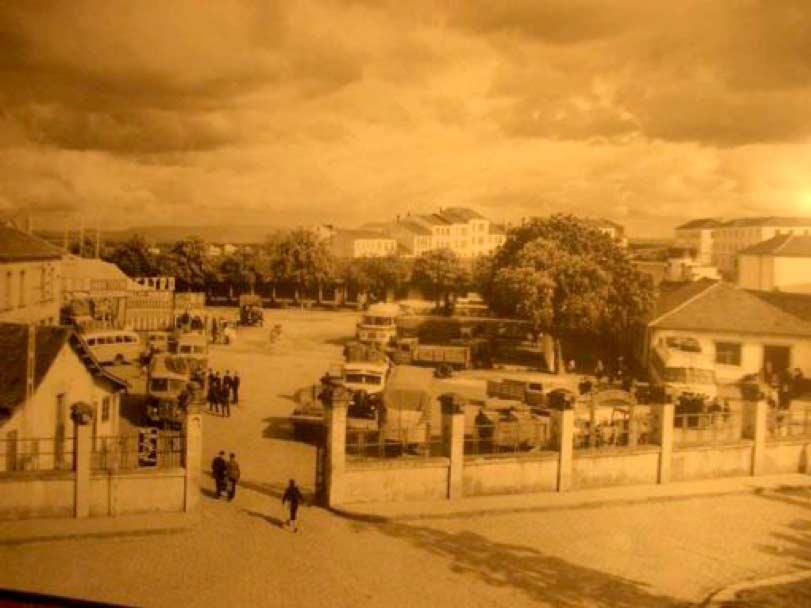
The essential business was the transport of animals and cattle breeders in mixed buses to the different fairs in the province of Lugo.
MONBUS HISTORY
The sixties. The first luxury autopullmans
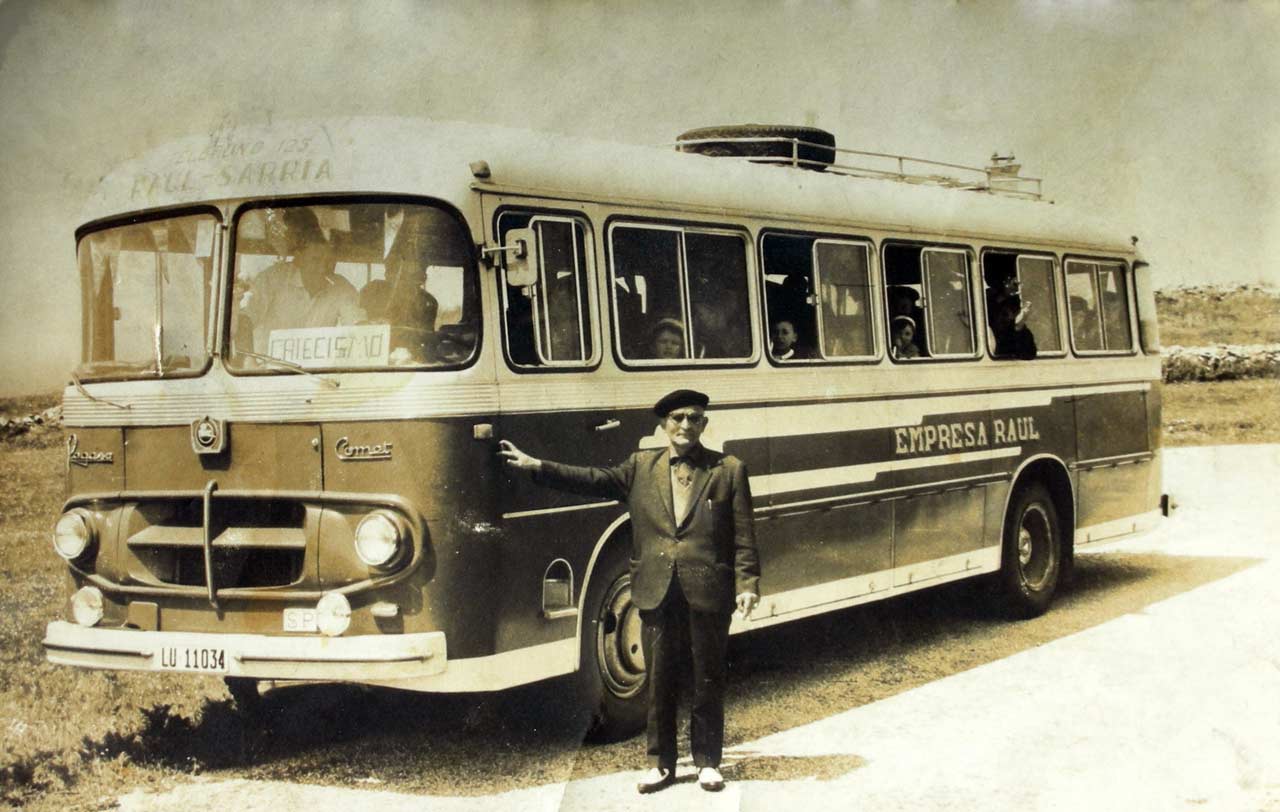
Although the company maintains its local sphere (Sarria - Lugo), it has five buses now.
MONBUS HISTORY
The seventies. Private transport services
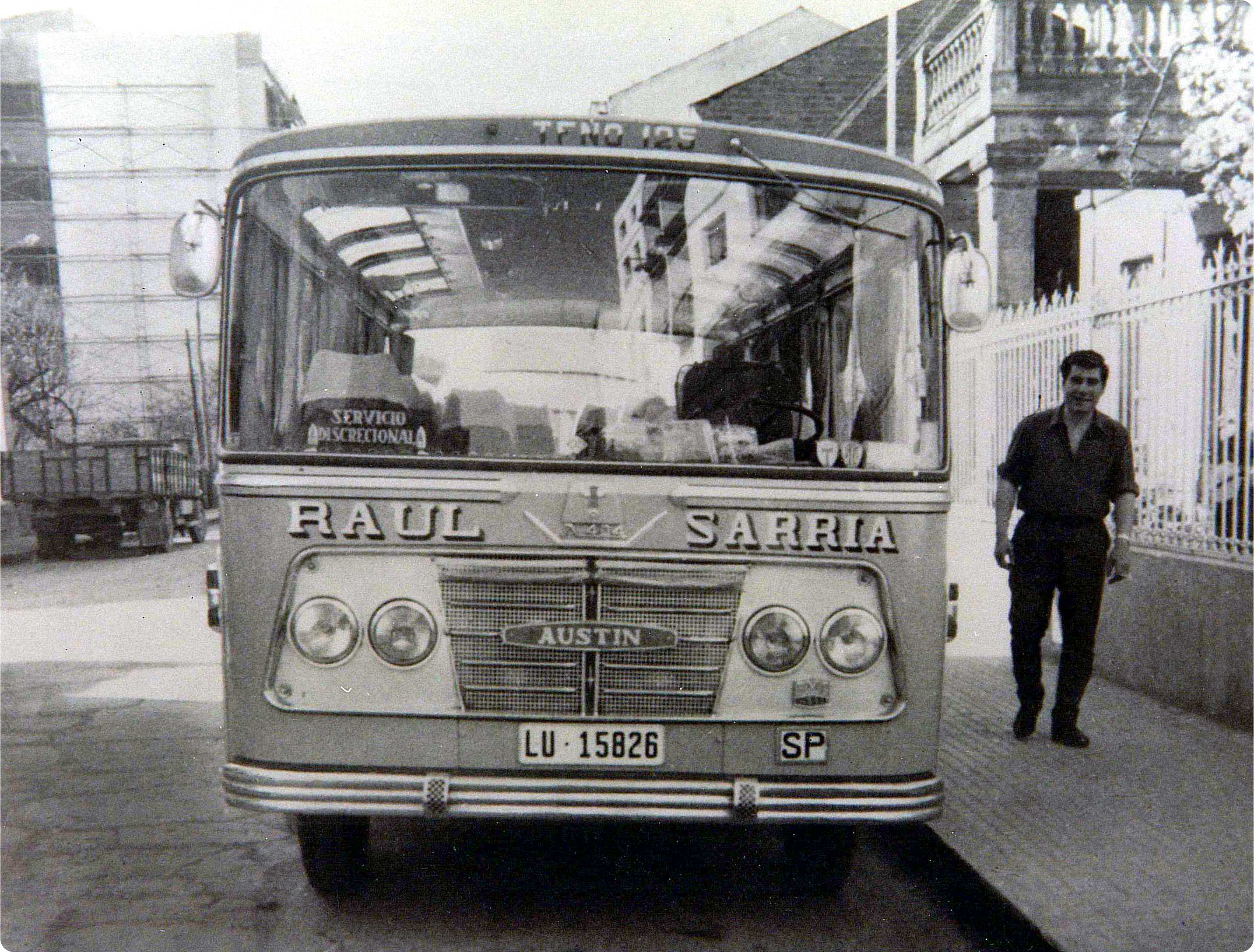
The company extends its radius of action: it works along all the province of Lugo and it increases the fleet up to fifteen buses, which are basically used for private transport services (occasional established trips for groups) and, in a lesser way, for school transport.
MONBUS HISTORY
1977 - 1978. The generational change
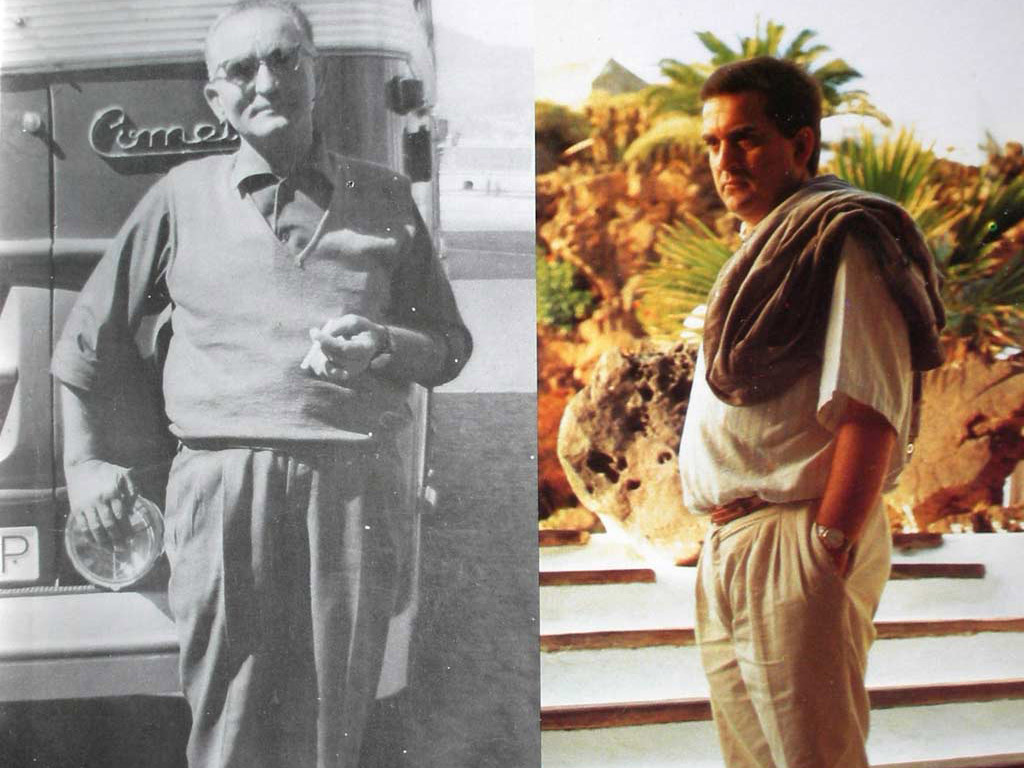
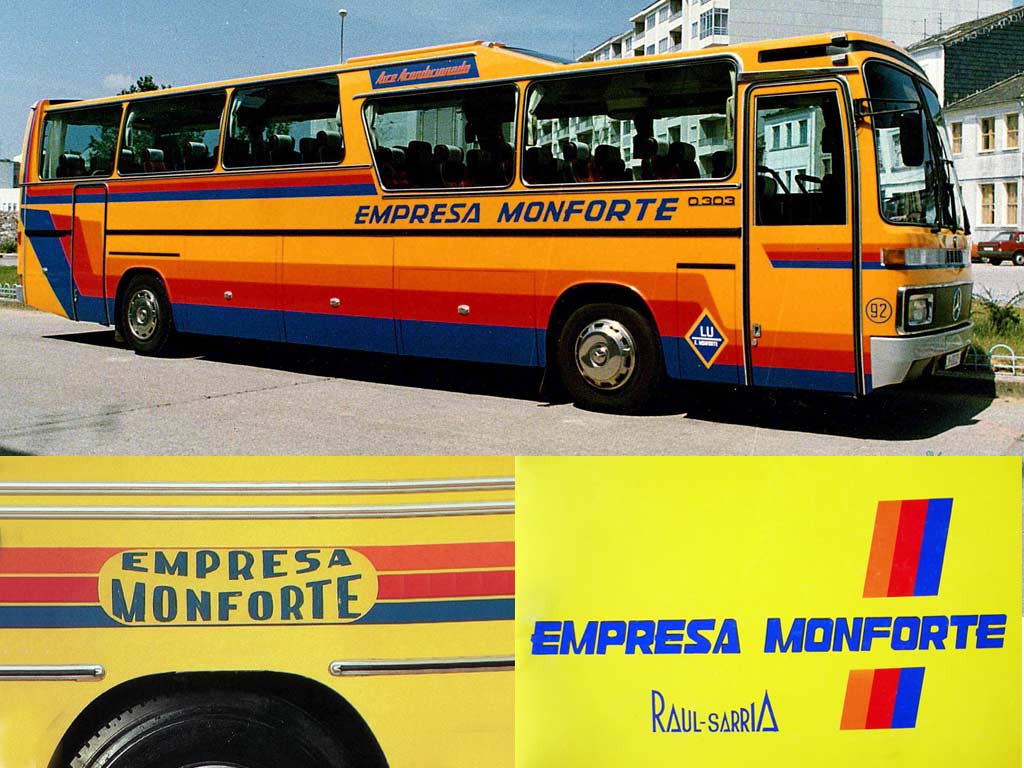
Raul Lopez Lopez picks up the baton of the company, until then in the hands of his father, Raul Lopez Loureiro.
It was then, when Empresa Monforte, S.A. (EMSA) and Autobuses Urbanos de Lugo, S.A. (AULUSA) were purchased.
Route “Lugo - Monforte - Santiago” and Transport at the built-up area of Lugo.
The company reaches the number of 30 buses and 60 employees.
MONBUS HISTORY
The eighties. Consolidation of Empresa Monforte
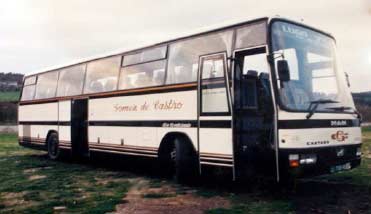
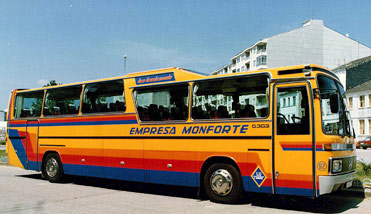
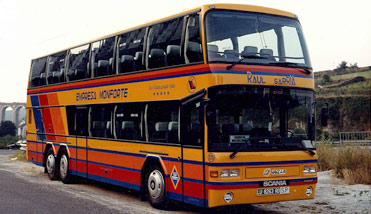
Purchase of “Rutas a Cataluña, S.A.” (RUACASA), Empresa Ribadeo, S.A., and Gómez de Castro, S.A. Routes “Lugo - Barcelona”, “Corunna - Lugo - Viveiro - Foz - Ribadeo” and “Lugo - Vigo”.
The company is updated with the leading vehicles of the time.
Fleet of 40 vehicles and 100 employees.
MONBUS HISTORY
1990 - 1993. VIBASA Incorporation
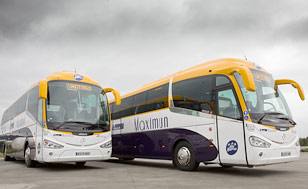
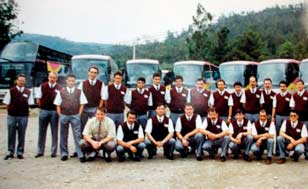
From the beginning, in the year 1990, Vibasa has maintained a constant and increasing development to become an outstanding figure in long distance road passenger transport throughout Spain.
Routes “Vigo - Barcelona”, “Galicia - Euskadi” and “Irun - Barcelona”.
From the year 2012 onwards, Vibasa has carried out a complete renovation of the fleet by means of the line of buses MAXIMUM, vehicles especially designed to maximize the users’ security and comfort in long distance travels.
Purchase of VIBASA - GAESA and IRBARSA (38 buses and 75 employees).
MONBUS HISTORY
1998. Other areas of activity
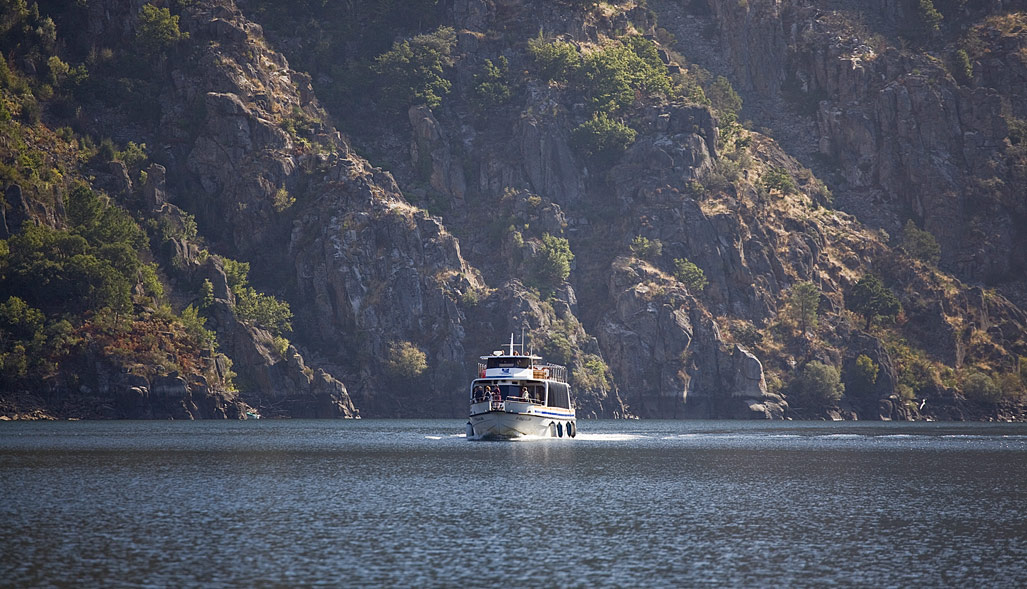
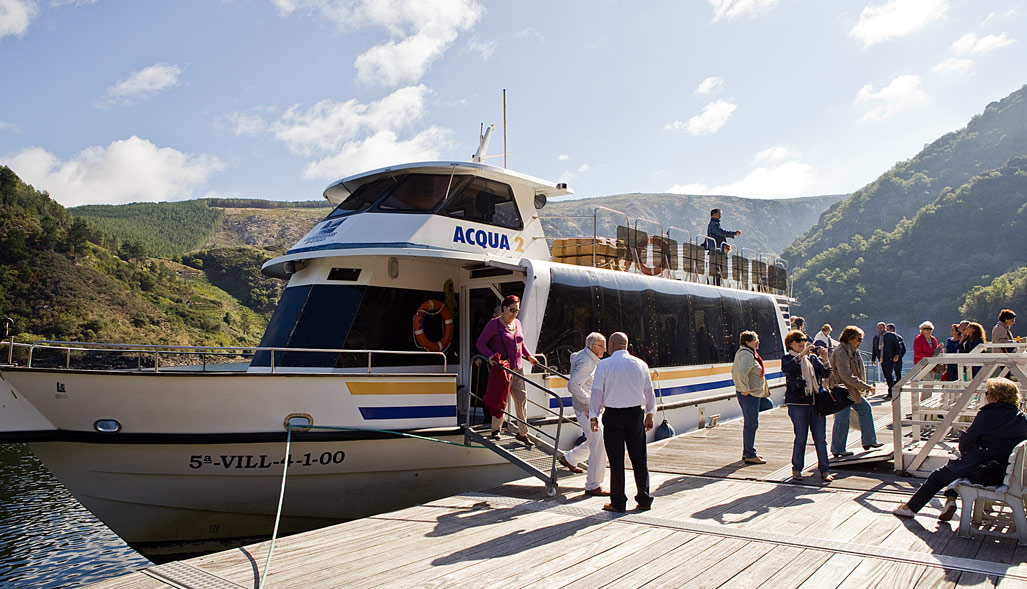
Purchase of the travel agency Hemisferios S.L. The activity of the company revolves around:
- The creation of a wide variety of programmes and tourist circuits.
- The management of “The catamarans of Lugo”, with a ship which makes tourist - cultural fluvial cruises along the Cannons of Sil, placed at Galician Ribeira Sacra.
MONBUS HISTORY
2000. Presence in the province of Pontevedra
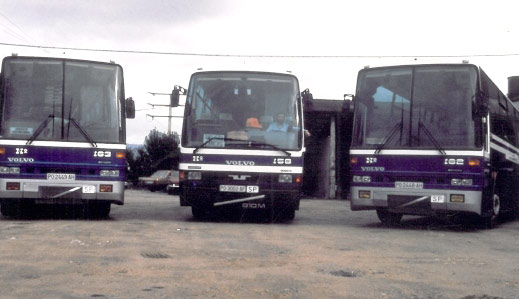
Purchase of Transportes La Unión S.A., Autobuses de Pontevedra, S.A. and repurchase of Gomez de Castro, S.A., after its sale in 1985.
Rias Baixas route “Vigo - Pontevedra” and route “Lugo - Vigo”.
135 buses and 220 employees.
MONBUS HISTORY
2002. Incorporation of Castromil Group S.A.
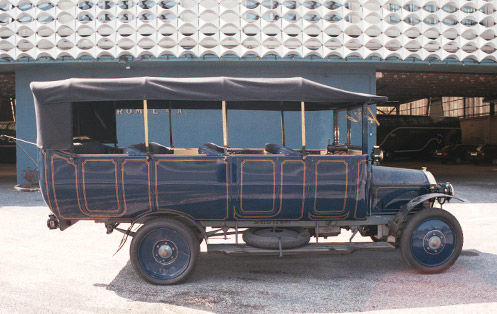
Purchase of Grupo Castromil S.A.
Route “Corunna - Santiago - Vigo - Ourense”.
110 buses and 180 employees.
MONBUS HISTORY
2004 - 2006. International expansion
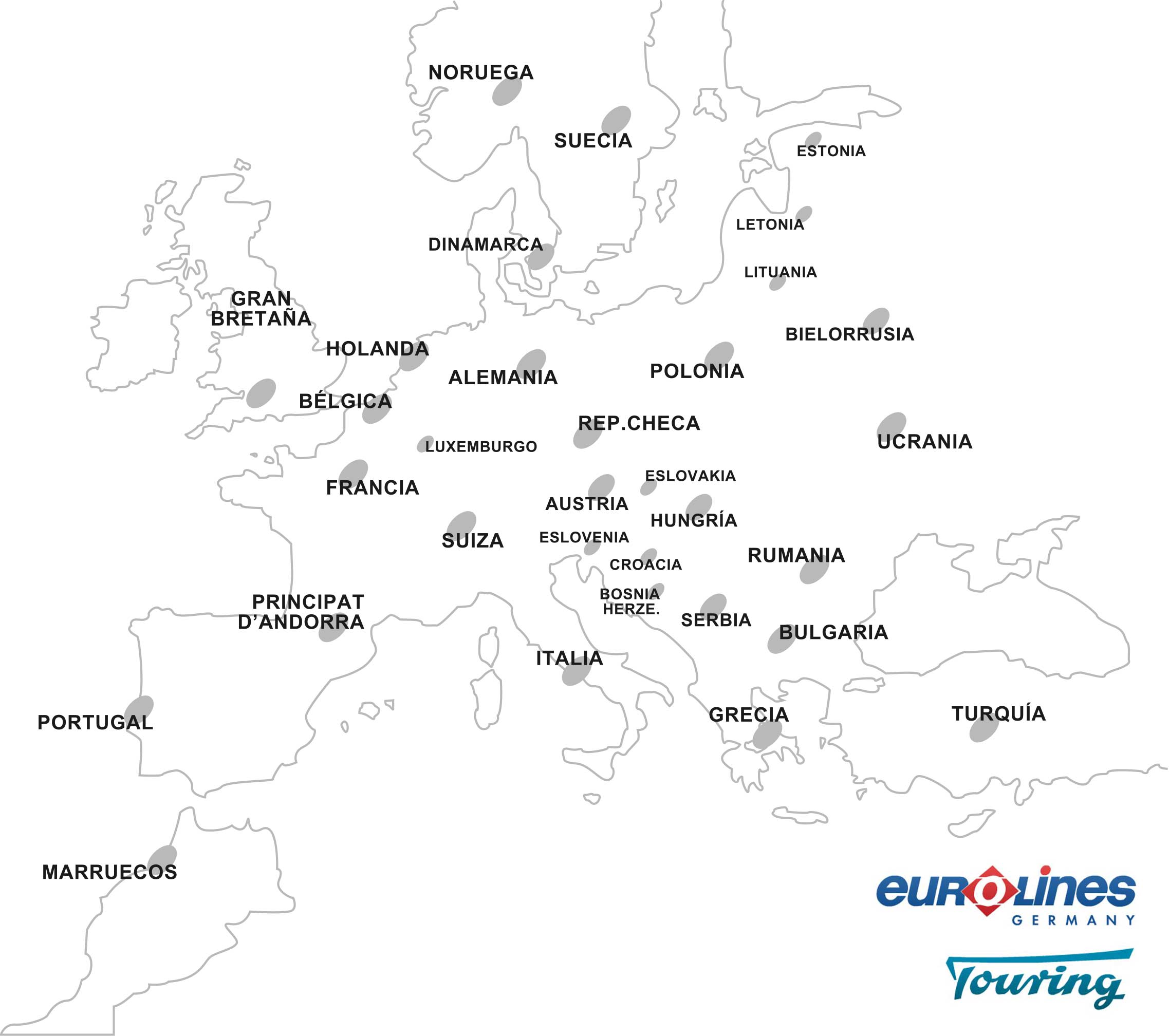
Monbus has taken part in the German company Deutsche Touring (DTG), the first long distance bus operator in Europe, since 2005. The main area of business of DTG is regular international bus lines among German and up to eight hundred destinations, belonging to thirty-four European countries and Morocco.
2006. Peninsular Eurolines and Urban Transport
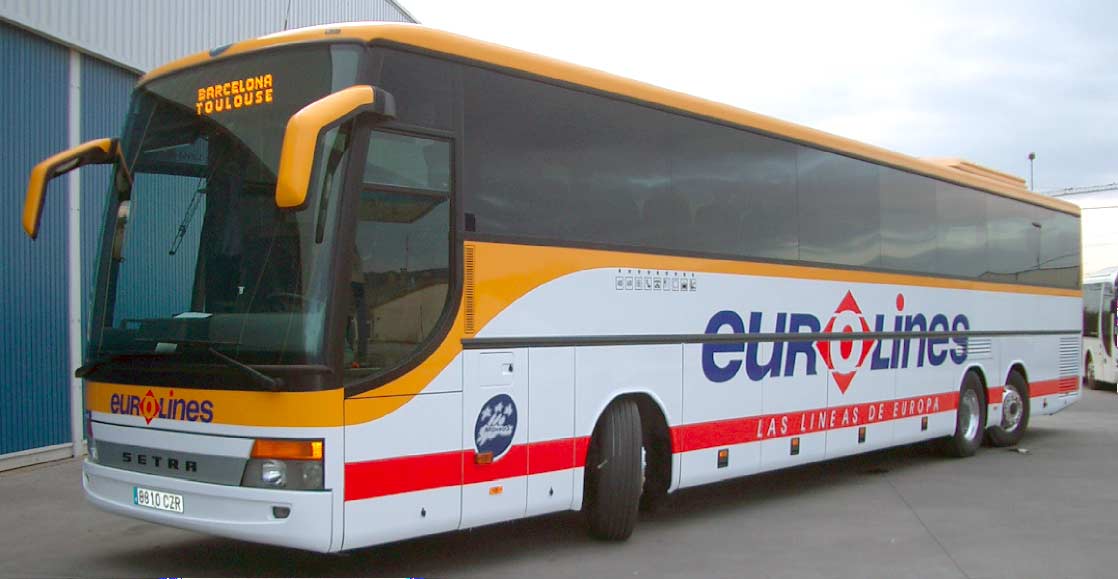
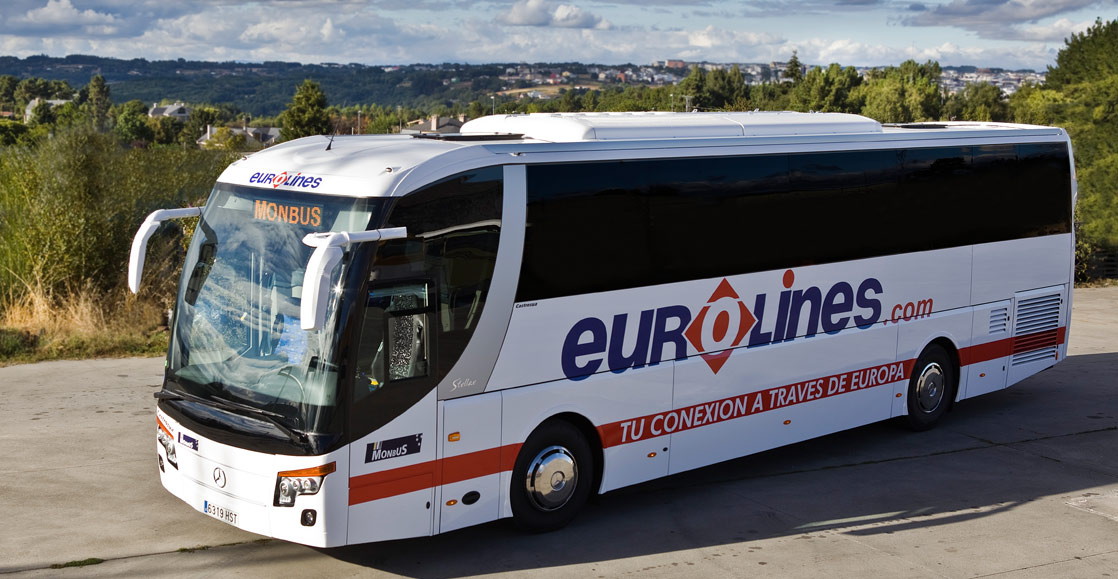
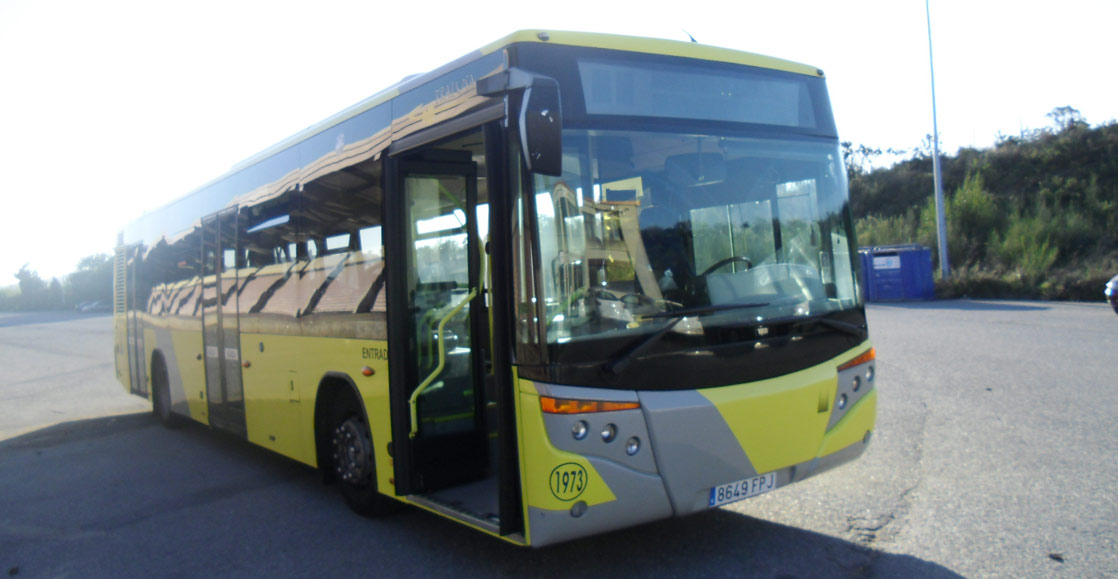
Purchase of Peninsular Eurolines (Julia Group)
The company has its operation centre in Barcelona and runs routes belonging to Eurolines network throughout Europe, covering more than six million kilometres every year.
Urban transport growth
TRALUSA (Urban Transport Operator in Santiago de Compostela) is created in Galicia. 40 buses and 100 employees.
In the city of Burgos, the comprehensive maintenance service of the fleet of the City Council Urban Transport is carried out. 27 buses.
MONBUS HISTORY
2007 - 2008. Consolidation in Spain
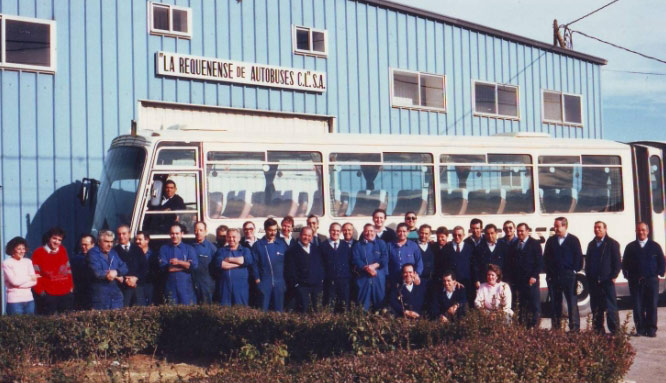
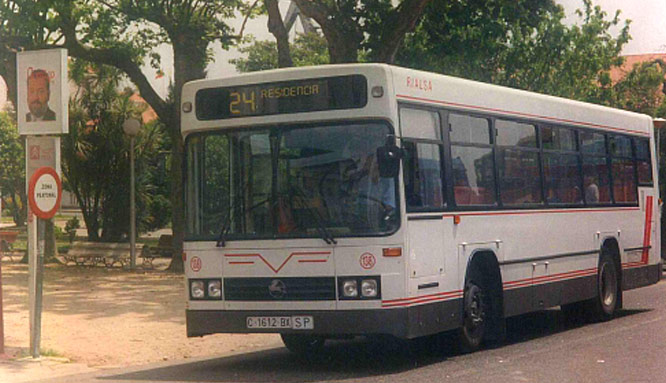
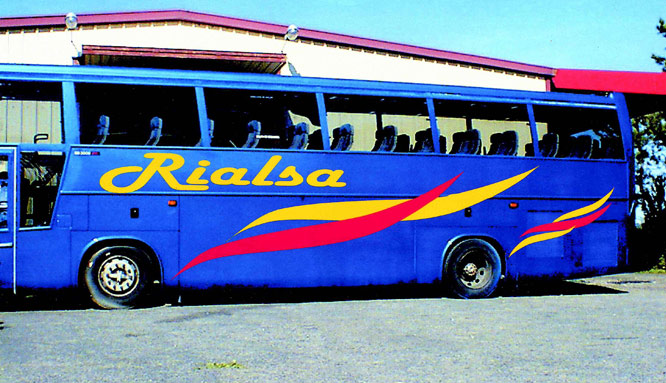
Castilla La Mancha: Purchase of Alsina, S.A. and La Requenense, S.A. Operation centre in Castilla La Mancha and Valencia. Routes “Castilla-La Mancha - Comunidad Valenciana”. 80 buses and 100 employees.
Ourense and Ferrol: Purchase of La Directa and Rías Altas, S.A. (RIALSA). Route “Lugo - Ourense”. Route “Ferrol - Cedeira”.
MONBUS HISTORY
2009. National expansion
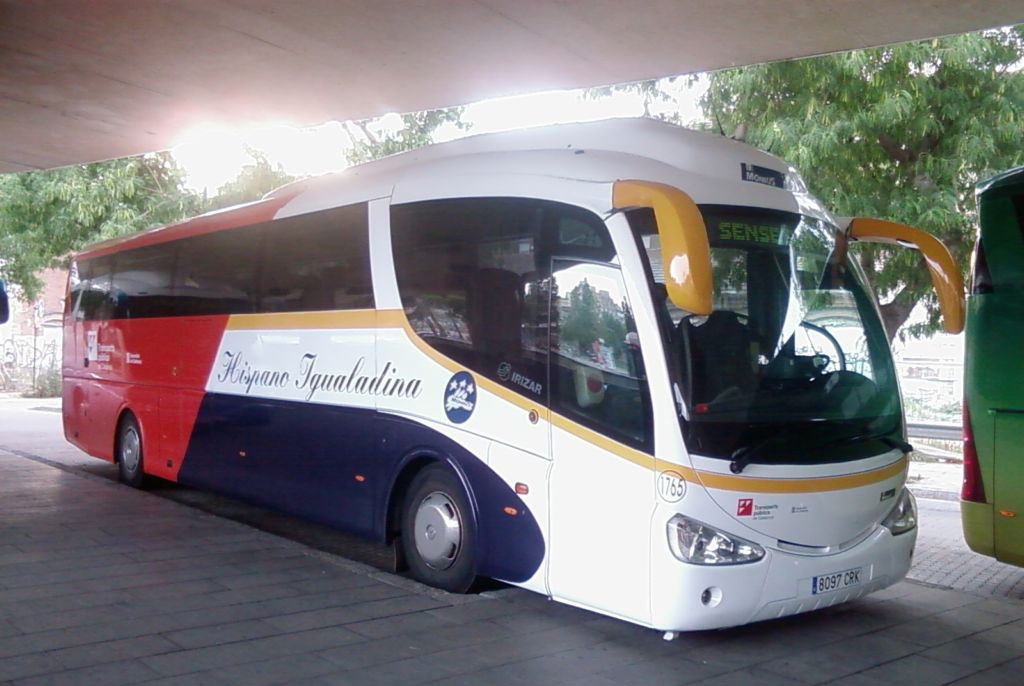
Cuenca: Purchase of Alsina Rodríguez, S.A. (Urban transport operator in Cuenca). 16 buses and 38 employees.
Cataluña: Purchase of the Catalonian company La Hispano Igualadina S.A. in 2009. The operation centre is located in Barcelona and Tarragona. 95 buses and 151 employees. Thanks to the purchase of this company, Monbus becomes the first Spanish road passenger transport operator of national shareholder.
MONBUS HISTORY
2011. Establishment at the Community of Madrid
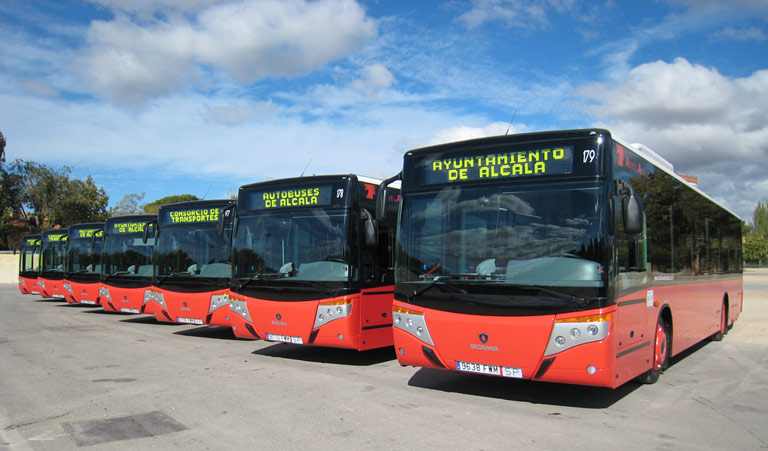
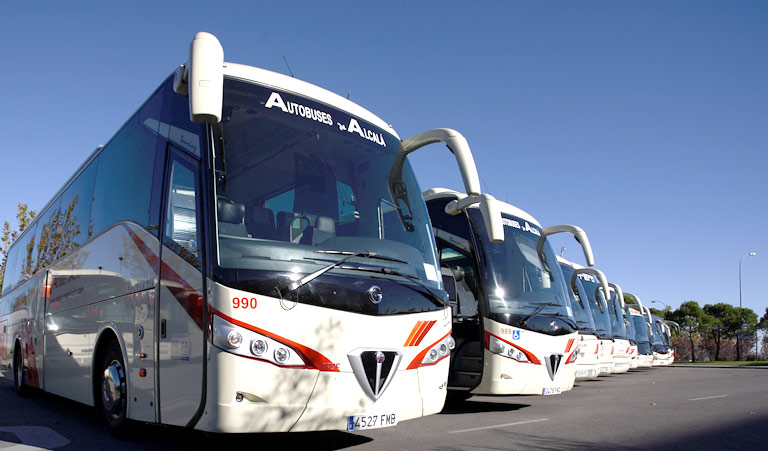
Purchase of Autobuses Alcala, which has the concession of Alcala de Henares Urban Transport (2011).
The company depends on the “Consorcio de Transportes de Madrid” (CRTM) and has its operation centre in Alcala de Henares, Madrid.
This purchase implies the definite establishment of Monbus in the Community of Madrid. 68 buses and 180 employees.
Peripheral services in Alcalá de Henares. Route of Pezuela.
Base in Pezuela, Madrid. 6 buses and 10 employees.
Community of Castilla La Mancha: Purchase of the Urban Transport of Guadalajara.
Operation centre in Guadalajara, Castilla La Mancha. 36 buses and 96 employees.
MONBUS HISTORY
2014. Acquisition of Extremadura- Salamanca- Barcelona Renfe Iñigo dealership


Renfe Iñigo corporation was founded in 1978, although its origins date back to 1921, with the first government concession that linked Salamanca with Las Velillas, then subsequently was growing to the localities from Colmenar de Montemayor. It was created as well the Line from Linares de Riofrío, which was expanding through the range of Salamanca to the town of Sotoserrano. Just this line was extended in the 70's through the Hurdes of Extremadura zone, to the town of Coria.
The corporation between RENFE and Don Sebastián Iñigo Madera was created in 1978, in this society the ancient ENATCAR transport road division, contributed the line Salamanca- Barcelone (current Barcelone- Salamanca- Coria) and Don Sebastián all his dealerships, in Salamanca's province.
In 2002 was carried out a total renovation of the fleet, counting nowadays with an entirely new fleet. Since 2004 the corporation has the ISO 9001 quality certificate, and to start from December of 2007 it proceeded to implement the ISO 14001 control of environmental quality, obtaining the respective certificate.
Furthermore the corporation makes school transportation and discretionary services.
HISPANO-IGUALADINA HISTORY
1916. The origins
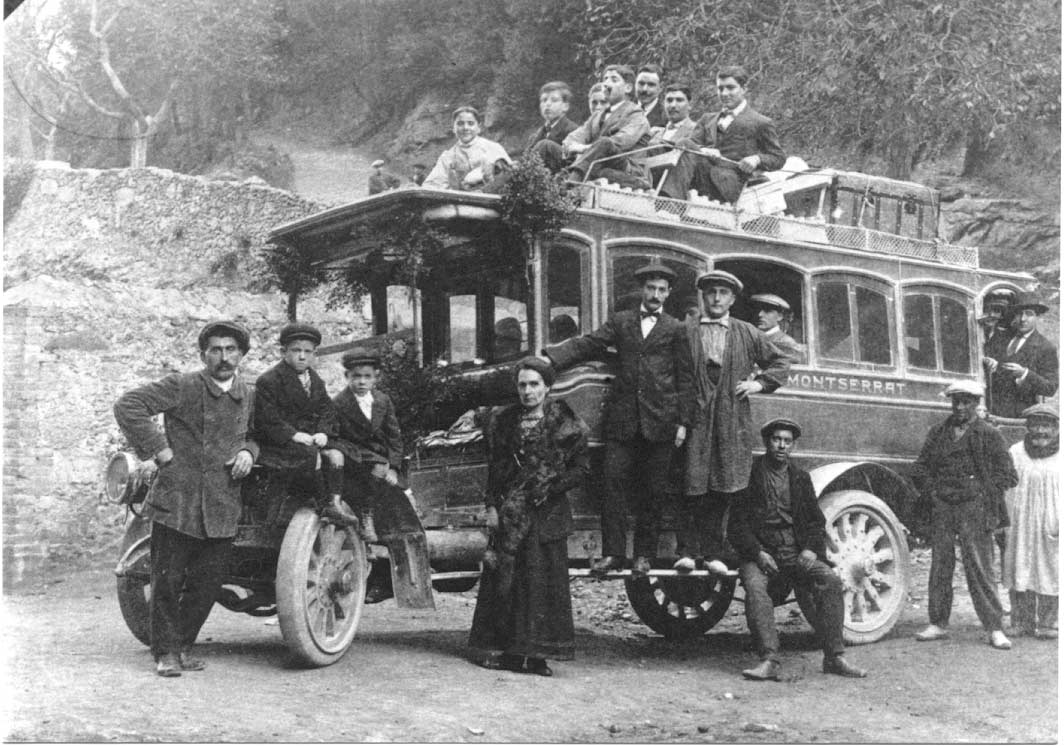
The origins of La Hispano Igualadina go back to the beginning of last century.
During the First World War, Mr. Josep Queral Martí replaced the stagecoaches by cars and, together with technical progress lovers, founded a society dedicated to transport. That’s how La Hispano Igualadina was born, 5th January, 1916. Its name comes from the combination of the famous vehicle brand “Hispano-Suiza” and the town where the company was settled.
HISPANO-IGUALADINA HISTORY
1929. Igualada - Barcelona Concession
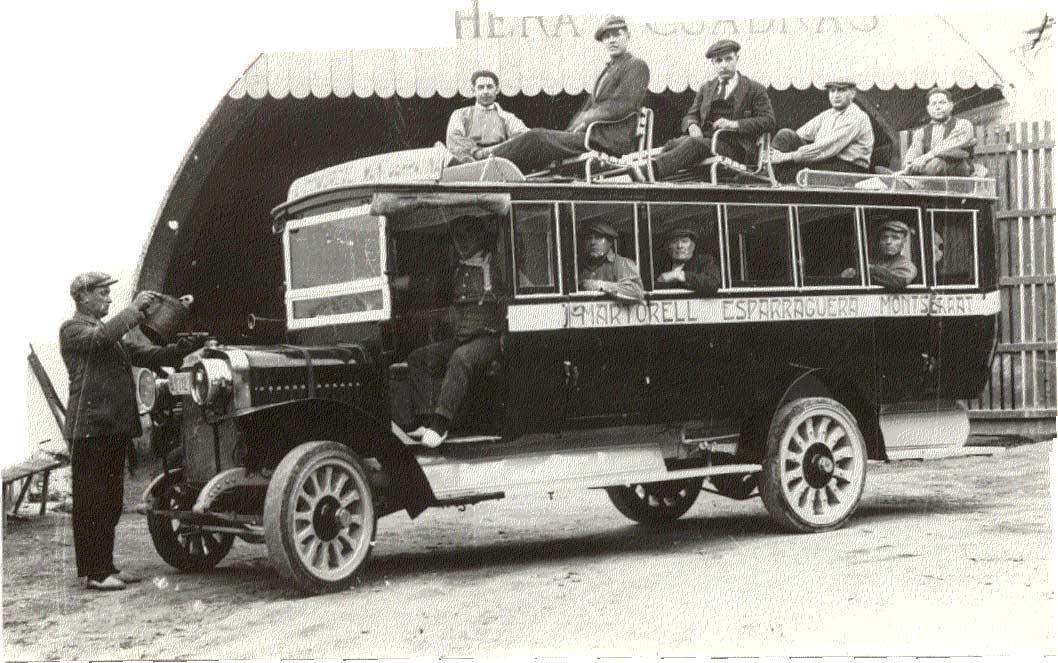
Thanks to the Royal Decree 4th July, 1924, a vital development related to public transport and communications started in some towns.
La Hispano Igualadina would achieve the concession between Igualada and Barcelona some years later, under the rules of free competition with other companies, among them La Montserratina.
HISPANO-IGUALADINA HISTORY
1936 - 1945. The difficulties after the war
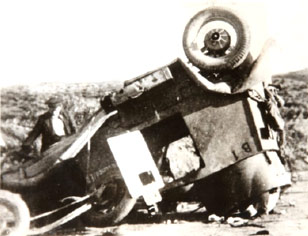
With the beginning of the Spanish Civil War, the difficulties to maintain the services started. Moreover, with the retreat of the governmental forces in 1939, the vehicles were confiscated and sent to France.
After the end of the war, the search of the confiscated vehicles began and, once found, they were taken to Igualada in order to be restored. Unfortunately, four vehicles have never been found.
HISPANO-IGUALADINA HISTORY
1950 - 1965. Expansion to the province of Tarragona
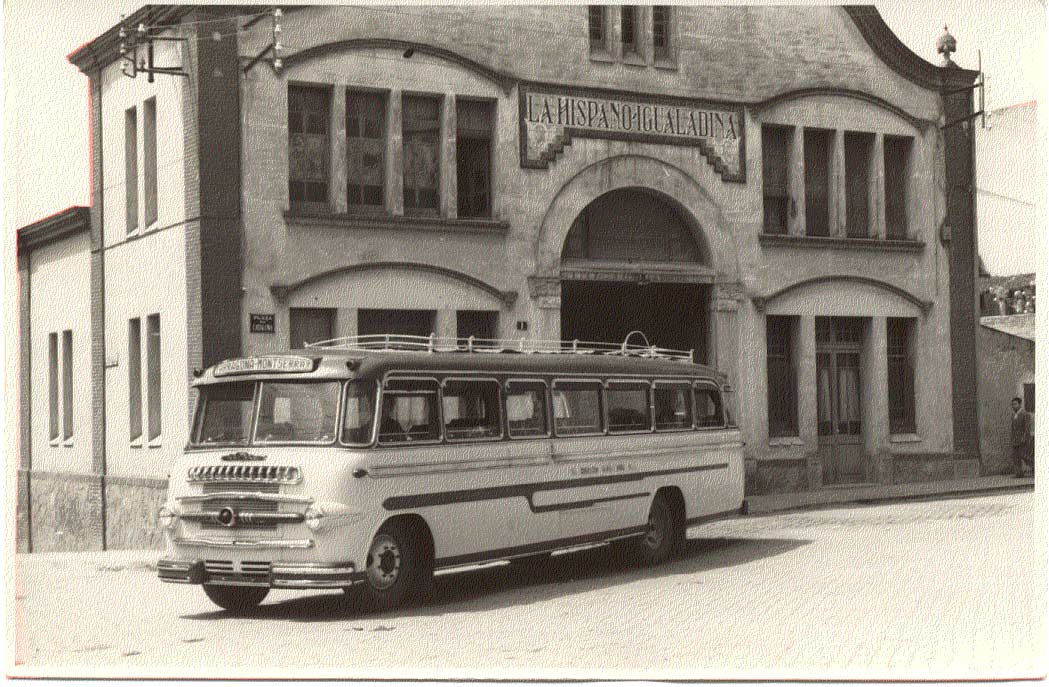
Alfredo Alsina Duran took charge of the company. At that time, La Hispano Igualadina had 17 petrol buses, 18 diesel buses and around 241 kilometres of concession, which have been gradually increased along the province of Tarragona.
HISPANO-IGUALADINA HISTORY
1970 - 2008. A new business boost
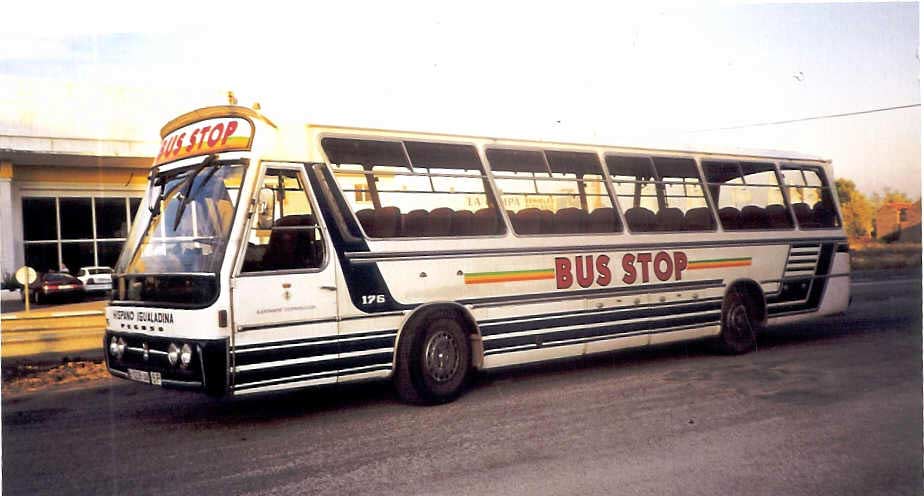
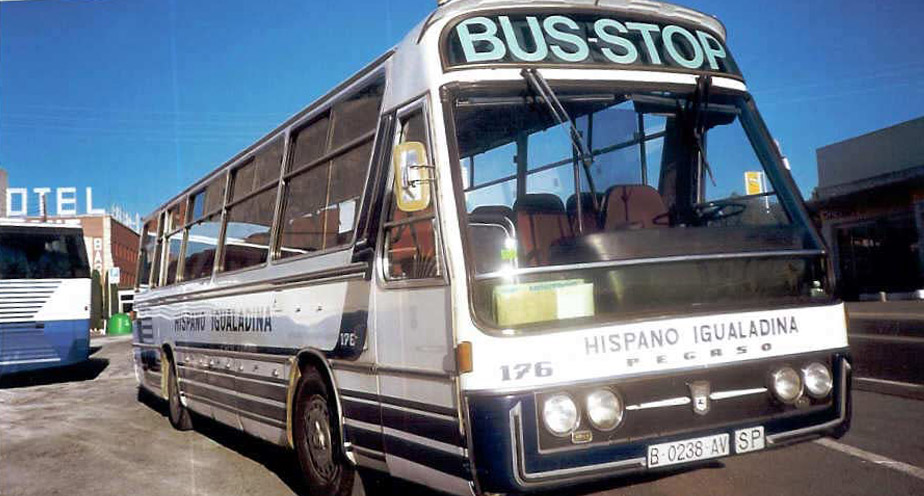
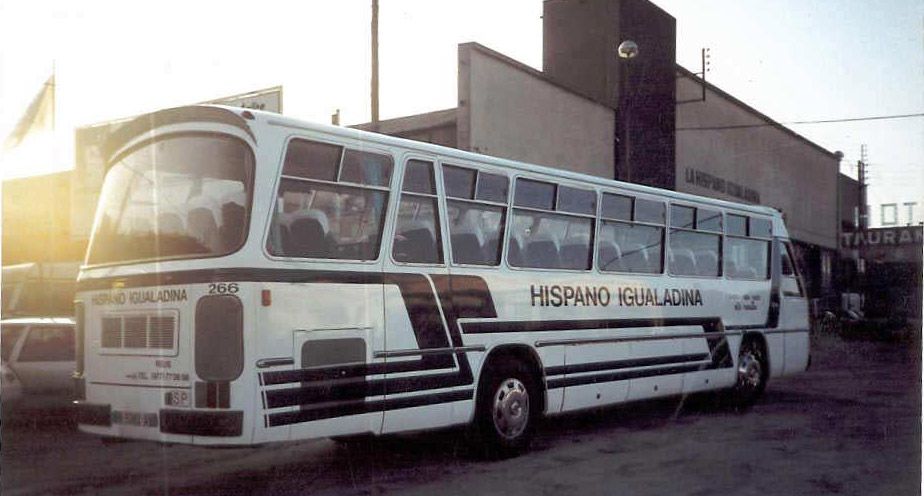
With the death of Alfredo Alsina in 1970, his son, who has worked in the company for a long time, took charge of the direction of the company.
At that time, La Hispano Igualadina had 544 kilometres of concession.
The new family generation gave the company an important boost, acquiring and widening the concessions in a considerable way.
HISPANO-IGUALADINA HISTORY
2009. Integration with Monbus
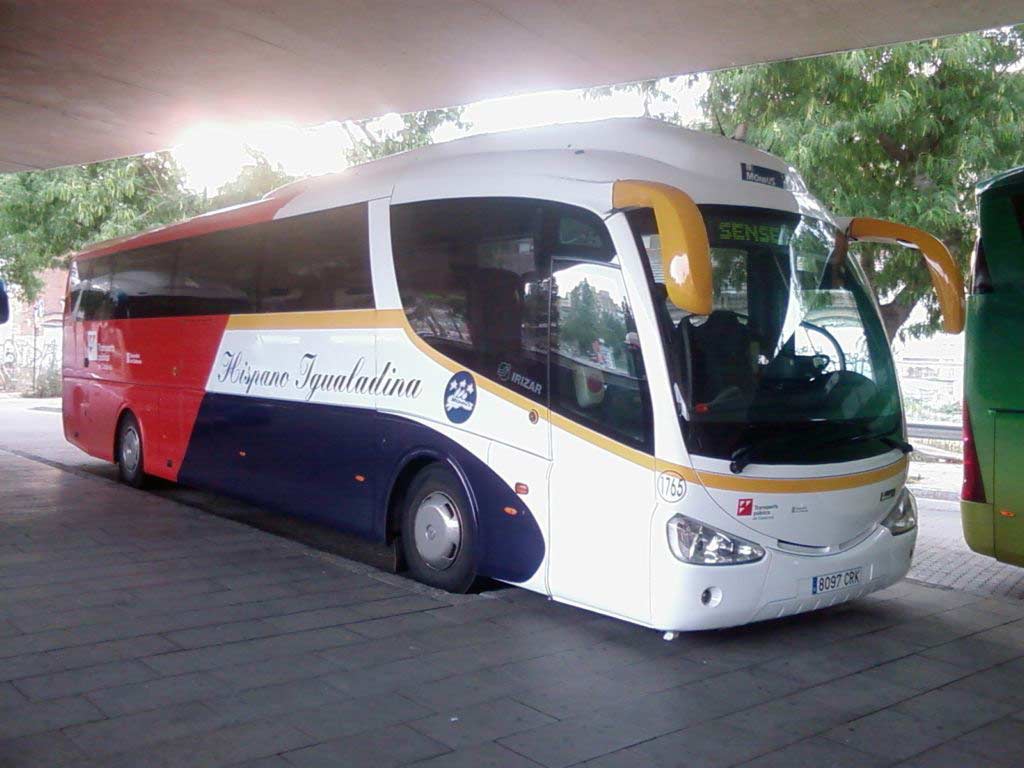
La Hispano Igualadina was joined to the Group of Companies Monbus.
LA REQUENENSE HISTORY
1915. Wine transport
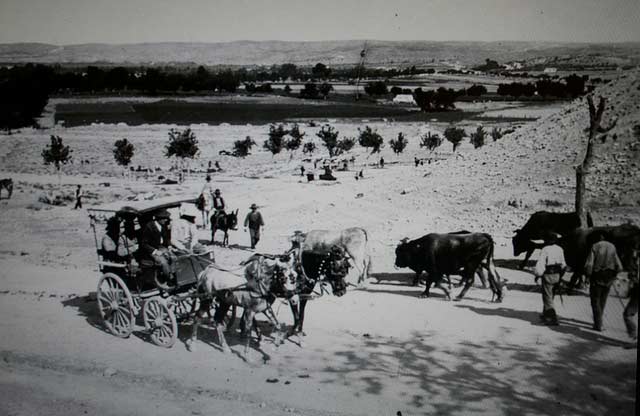
Placed at a land of great vineyards, originally La Requenense dealt with goods transport, mainly wine. It organised long travels of two or three days throughout Castilla La Mancha using stagecoaches.
LA REQUENENSE HISTORY
1926. Passenger transport in stagecoaches
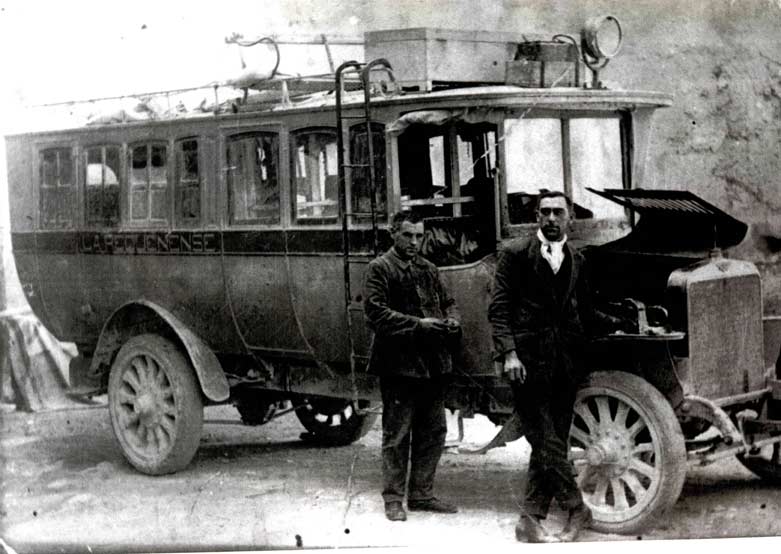
Passenger transport started on stagecoaches, in which transfers were quite common, in order to be able to overcome long distances. They usually left from Requena to Villatoya, where the stagecoach was changed to continue to Mahora and from there to Albacete, where the stagecoach was changed again.
LA REQUENENSE HISTORY
1930. Passenger transport by bus
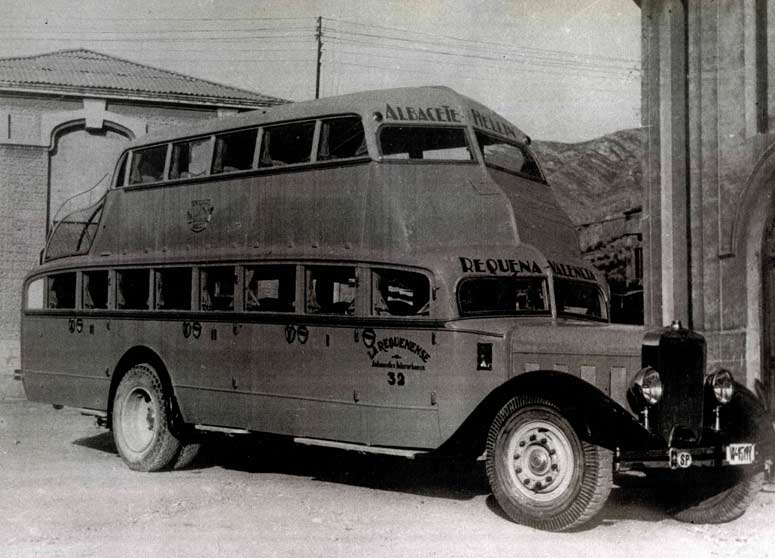
The transport of passengers by bus started during this period. The buses, which were customized with female names, worked with gas and their wheels were hard.
LA REQUENENSE HISTORY
1936. Spanish Civil War
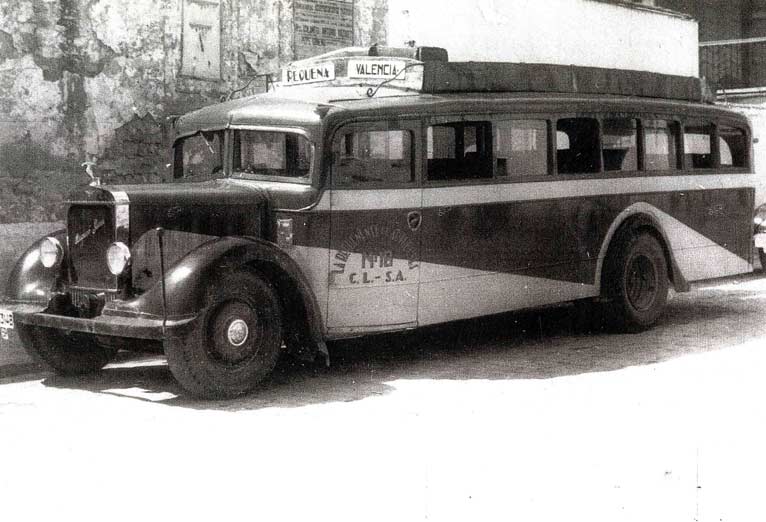
During the Spanish Civil War, the vehicles, together with the drivers themselves, were confiscated and taken to the battle front. Fortunately, almost all of them were recovered after the conflict.
LA REQUENENSE HISTORY
1950 - 1989. Business growth
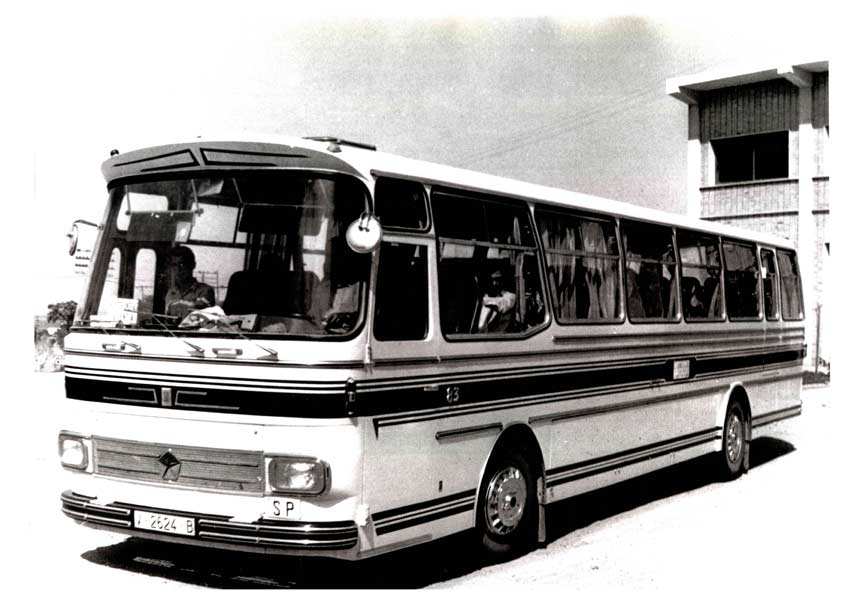
The company increased its volume together with its bus fleet, achieving at the same time a larger number of services.
LA REQUENENSE HISTORY
1990. The company was incorporated to Autobuses Alsina
Don Jose Antonio Perez Salamero, who took charge of the company in 1985 while he was working as director of the Foreign Bank of Spain in Panama, sold all the shares to Autobuses Alsina, a company which would be incorporated to Monbus some years later.
CASTROMIL HISTORY
1917. Evaristo Castromil, the founder

The company traces its roots from the hand of Evaristo Castromil in Santiago de Compostela, with a fleet of six buses. In that period, the different companies could run the same routes and as a consequence of this, competition was something usual.
CASTROMIL HISTORY
1924. Materialization of the map of concessions

The Royal Order, by means of which passenger services as well as messenger services were regulated, was passed in July, 1924.This order, attributed each route to only one company and therefore, Castromil obtained the concessions of the routes it was running.
CASTROMIL HISTORY
1927 - 1929. Increase of the bus fleet

In that period, Castromil was in charge of almost all the routes that has at the present time, such as Santiago-Lalin or Santiago-Corunna. There was a bus fleet of 47 vehicles made in Galicia in 1929. Some buses could transport passengers on the top of their roof, while other had wooden seats. In those days, there were first, second and third class tickets.
CASTROMIL HISTORY
1930. Establishment in Santiago de Compostela



The building of “Quiqui Bar”, placed at Galicia Square, was bought during this period. It was turned into Castromil central office until 1973, when the company moved to the outskirts of Santiago de Compostela. Its definite establishmentt in Galicia took place after the purchase of the companies: Auto Industrial, Albores, Aguila Sande, Avelino Garrido and Villalon.
CASTROMIL HISTORY
1950: “Castromil stories”



Castromil was the first company which attributed names of famous Galician people, such as Rosalia de Castro, Otero Pedrayo, Castelao etc. to their vehicles. At the same time they handed out some travelling stories entitled “Contos do Castromil” to the passengers, in order for them to enjoy the trip reading outstanding writers of Galician culture.
Castromil has defended and promoted Galician language since its beginning and as a consequence of this, it was awarded with “Pedron de Ouro” (1993) and Galician bronze medal (1994).
CASTROMIL HISTORY
1975. Purchase of the company Auto Industrial
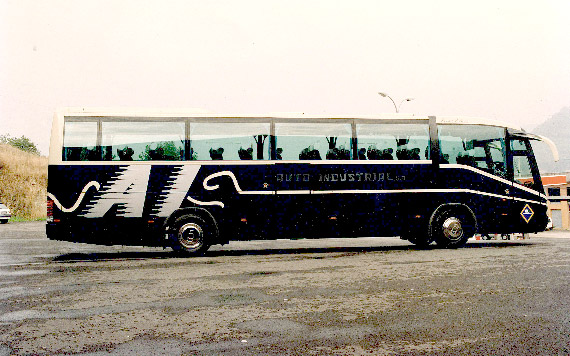
The company Auto Industrial was incorporated to Castromil, thus Castromil became the largest Galician company dedicated to road passenger transport at that time.
CASTROMIL HISTORY
1992 - 1994. Galician language linguistic promotion

Castromil was the first company which attributed names of famous Galician people, such as Rosalia de Castro, Otero Pedrayo, Castelao etc. to their vehicles. At the same time they handed out some travelling stories entitled “Contos do Castromil” to the passengers, in order for them to enjoy the trip reading outstanding writers of Galician culture.
Castromil has defended and promoted Galician language since its beginning and as a consequence of this, it was awarded with “Pedron de Ouro” (1993) and Galician bronze medal (1994).
CASTROMIL HISTORY
1996. Purchase of Aguila Sande
This company ran the route Santiago - Curtis - Moraña - Pontevedra and its purchase implied an important support for the company.
CASTROMIL HISTORY
1999 - 2002. Incorporation to Monbus

During this period a series of important purchases took place, such as Empresa Villalon S.A. and the lines A Lama - Arcade - Vigo and Pontevedra - Tui, as well as allocations such as Padron Bus Station. Finally, Castromil was incorporated to Monbus with a fleet of 160 buses in 2002.

